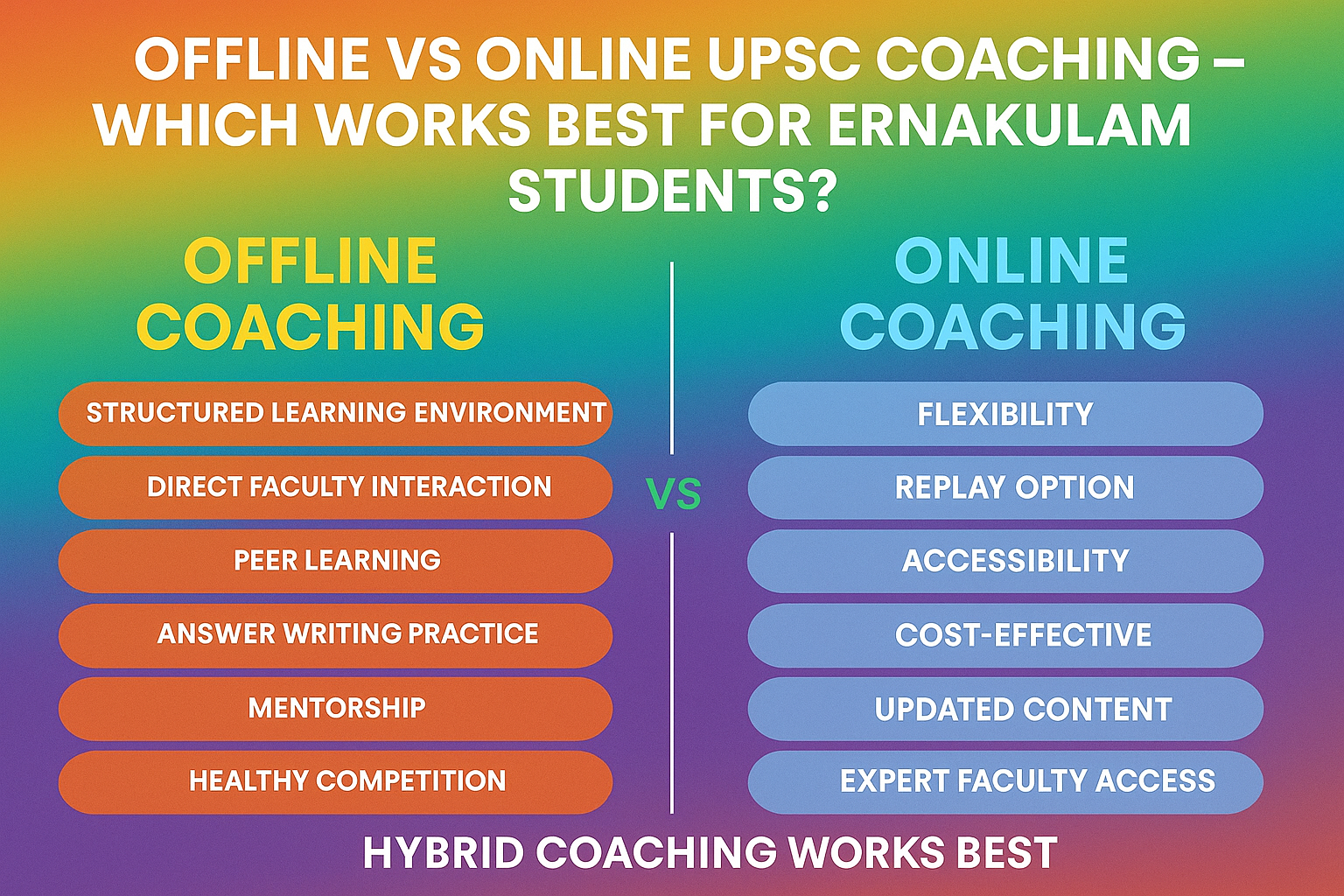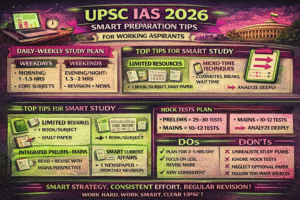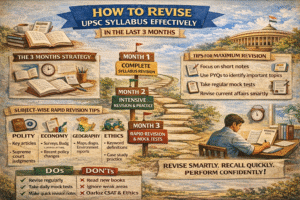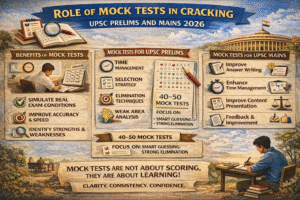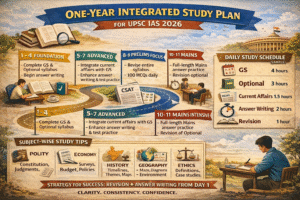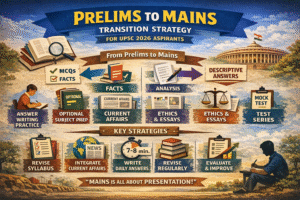For UPSC aspirants in Ernakulam, choosing between offline and online coaching can make a huge difference in preparation quality, consistency, and results. Both modes have their advantages, but the right choice depends on your personality, discipline, and study environment.
Why This Decision Matters for Ernakulam Students
Ernakulam has become one of Kerala’s fastest-growing education hubs with metro connectivity, libraries, and a thriving test-series culture. The region’s academic energy supports both offline and online formats, but their effectiveness varies based on individual needs.
Offline Coaching – Strengths and Advantages
Structured Learning Environment: Fixed class timings create discipline and routine.
Direct Faculty Interaction: Real-time doubt clearing, personalized guidance, and instant clarification.
Peer Learning: Interaction with serious aspirants enhances motivation and competitiveness.
Answer Writing Practice: Regular written tests simulate the UPSC exam environment.
Mentorship: Personal tracking, evaluation of notebooks, and handwriting feedback.
Healthy Competition: Encourages consistent performance through batch tests and ranking.
Challenges of Offline Coaching
Commute time and related fatigue.
Higher costs for accommodation and travel.
Limited flexibility for working professionals or college students.
Online Coaching – Strengths and Advantages
Flexibility: Study anytime, anywhere with recorded and live classes.
Replay Option: Revisit complex topics for deeper understanding.
Accessibility: Ideal for aspirants living away from city centers.
Cost-Effective: Usually lower in fees and no commuting expenses.
Updated Content: Instant access to current affairs, PIB, and PRS summaries.
Expert Faculty Access: National-level teachers available through digital platforms.
Challenges of Online Coaching
Requires strong self-discipline and time management.
Lack of direct peer interaction may reduce motivation.
Difficult to get immediate feedback or doubt resolution.
Possible distractions and screen fatigue.
Test Series and Evaluation
Offline Mode: Conducted in exam-like conditions with OMR sheets and supervised testing. Helps build real exam stamina and time management.
Online Mode: Provides flexibility to take tests at home. Some institutes allow uploading answers for evaluation. Works best when combined with periodic offline mocks.
Current Affairs Preparation
Offline: Daily discussions and peer analysis improve retention.
Online: Access to concise digital notes, infographics, and video summaries helps quick revision.
Cost and Accessibility
Offline Coaching: Includes class fees, travel, food, and accommodation expenses.
Online Coaching: Lower cost and no travel burden; suitable for students with stable internet access.
The Best Hybrid Strategy for Ernakulam Students
For most aspirants, a hybrid model combining both modes works best:
Online Classes: Use for conceptual clarity, revisions, and optional subjects.
Offline Tests: Attend weekend tests, discussions, and doubt-clearing sessions in Ernakulam centers.
Weekly Routine Example:
Mon–Thu: Online GS classes + self-study + 1 daily answer writing.
Fri: Current Affairs consolidation.
Sat–Sun: Offline test series and personal mentorship sessions.
Comparison Summary
| Criteria | Offline Coaching | Online Coaching |
|---|---|---|
| Interaction | Direct classroom engagement | Virtual via chat or video |
| Flexibility | Fixed schedule | Highly flexible |
| Peer Group | Strong group learning | Limited interaction |
| Doubt Clearing | Instant in-person support | Forum or chat-based |
| Evaluation | Written tests with feedback | PDF submissions or AI feedback |
| Cost | Moderate to high | Affordable |
| Ideal For | Beginners, disciplined learners | Working or college students |
Common Mistakes and How to Avoid Them
Offline Students: Avoid passive listening; take active notes and clarify doubts immediately.
Online Students: Avoid video hoarding; stick to a fixed schedule and take regular mock tests.
Why Hybrid Coaching Works Best in Ernakulam
The metro network allows students from across the city to attend weekend offline tests easily.
Numerous libraries and study spaces help maintain focus during online study hours.
Local institutes conduct frequent current affairs discussions and mock interviews.
Students benefit from both flexibility and accountability.
Conclusion
For most Ernakulam aspirants, hybrid coaching—combining the flexibility of online classes with the structure and discipline of offline mentorship—delivers the best results. Offline sessions strengthen answer-writing and focus, while online classes enhance revision and flexibility. The key to success lies in consistency, regular testing, and active participation in the learning community.

